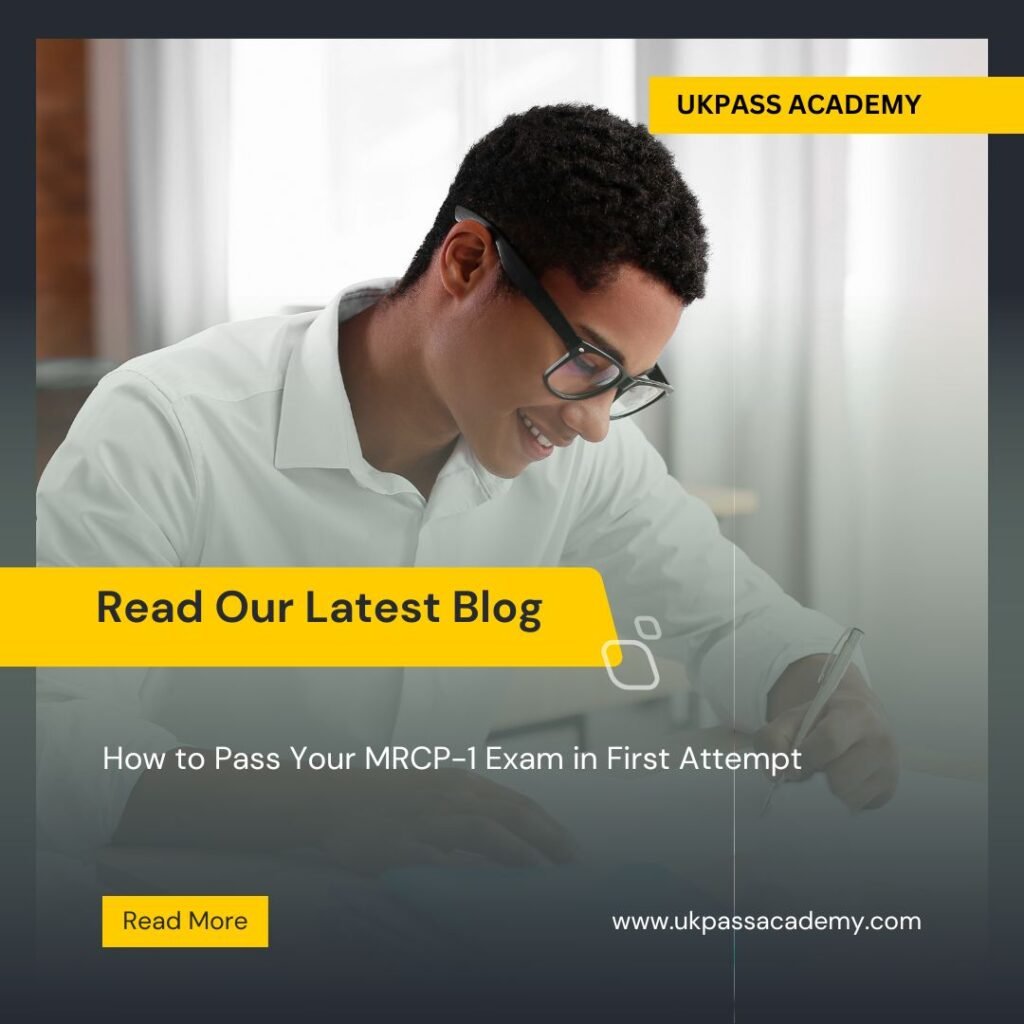Are you preparing for the MRCP-1 exam and striving to excel on your first attempt? Navigating the MRCP-1 exam requires thorough preparation and strategic planning. In this comprehensive guide, we’ll explore effective strategies, study tips, and techniques to help you succeed in the MRCP-1 exam.
Introduction to MRCP-1 Preparation
Hello, aspiring MRCP-1 candidates! Embarking on the journey to conquer the MRCP-1 exam can be both daunting and exciting. As a registrar at King’s Hospital, London, I understand the challenges and aspirations associated with this endeavor. Through this guide, I aim to provide you with invaluable insights and strategies to enhance your MRCP-1 preparation.
Step 1: Choosing the Right Study Material
Selecting the appropriate study material lays the foundation for effective MRCP-1 preparation. While there is a plethora of resources available, it’s essential to choose textbooks and review courses that align with your learning preferences and background. Here are some recommended resources:
- Harrison’s Principles of Internal Medicine
- Oxford Handbook of Clinical Medicine
- Rapid Review of Clinical Medicine by Sanjay Sharma
- Essential Revision Notes for MRCP by Chalra
- Basic Medical Sciences by Philippa J. Easterbrook
In addition to textbooks, creating personalized study notes by consolidating information from various sources can significantly enhance your understanding and retention of key concepts.
Step 2: Maximizing Question Bank Usage
Investing in a high-quality question bank is indispensable for MRCP-1 preparation. Practice answering a substantial number of questions daily, incorporating timed sessions to simulate exam conditions. Some popular question banks include Pastest, BMJ, and Past Medicine. Analyze the explanations provided for each question to gain deeper insights and reinforce your understanding of core concepts.
Step 3: Maintaining Error Logs
Analyzing mock tests and identifying areas of weakness are crucial steps in the MRCP-1 preparation process. Create an error log to track recurring mistakes and prioritize revisiting challenging topics. Addressing these areas early on will not only bolster your confidence but also ensure a more comprehensive grasp of the curriculum.
- Common errors to track in your log:
- Misunderstanding of concepts
- Inaccurate interpretation of diagnostic tests
- Difficulty in applying clinical knowledge to practice scenarios
Step 4: Effective Time Management
Effective time management is paramount for success in the MRCP-1 exam. Develop a study schedule that allocates dedicated time for each subject and practice answering questions within the allocated time frame. Aim to complete at least 50 questions daily, gradually increasing the difficulty level as you progress.
Step 5: Understanding Image-Based Questions
For Part 2 of the MRCP exam, image-based questions are integral components. Build a repository of images related to high-yield topics, such as dermatological conditions and diagnostic investigations. Practice interpreting these images to familiarize yourself with the types of questions commonly encountered in the exam.
Step 6: Identifying High-Yield Topics
Identifying high-yield topics can streamline your preparation process and optimize your study efforts. Focus on mastering key concepts and topics that frequently appear in the exam. Prioritize these topics in your study schedule and allocate sufficient time to ensure thorough understanding and retention.
Conclusion
Preparing for the MRCP-1 exam is a rigorous and demanding process, but with the right approach and resources, success is within reach. By following the six-step strategy outlined in this guide, you can enhance your preparation and increase your chances of achieving a stellar performance on your first attempt. Remember to stay focused, stay motivated, and stay committed to your goal of mastering the MRCP-1 exam.

